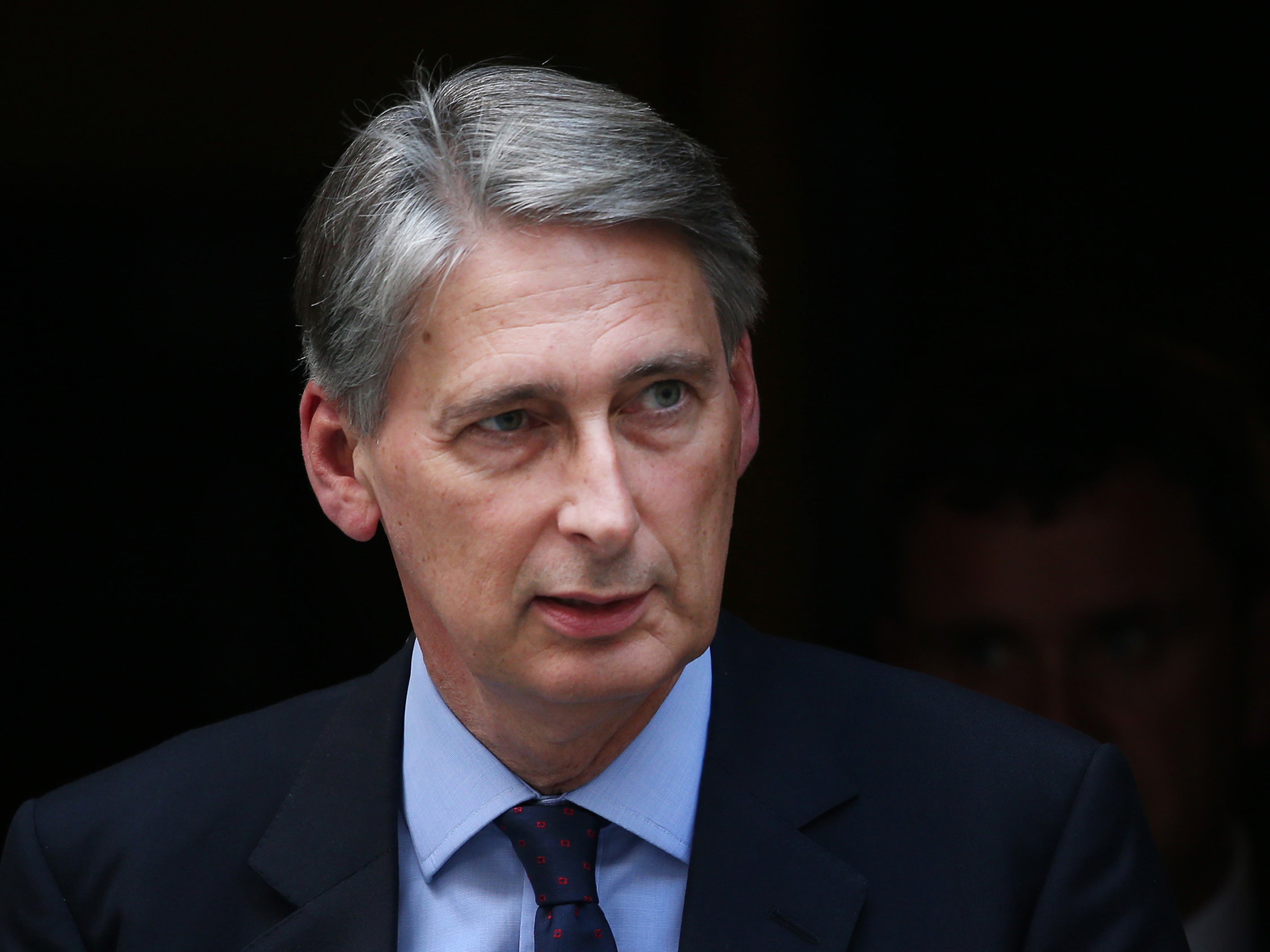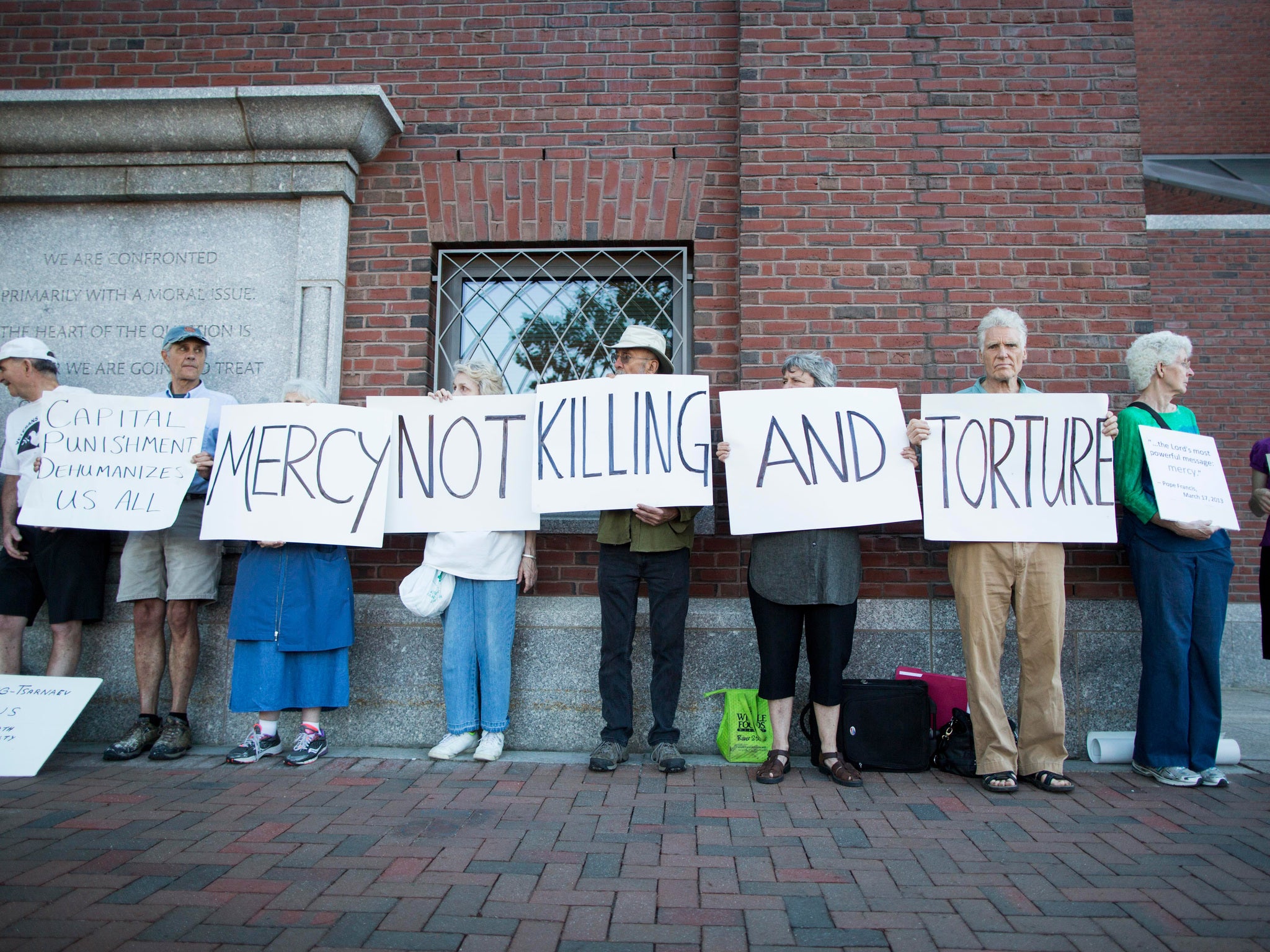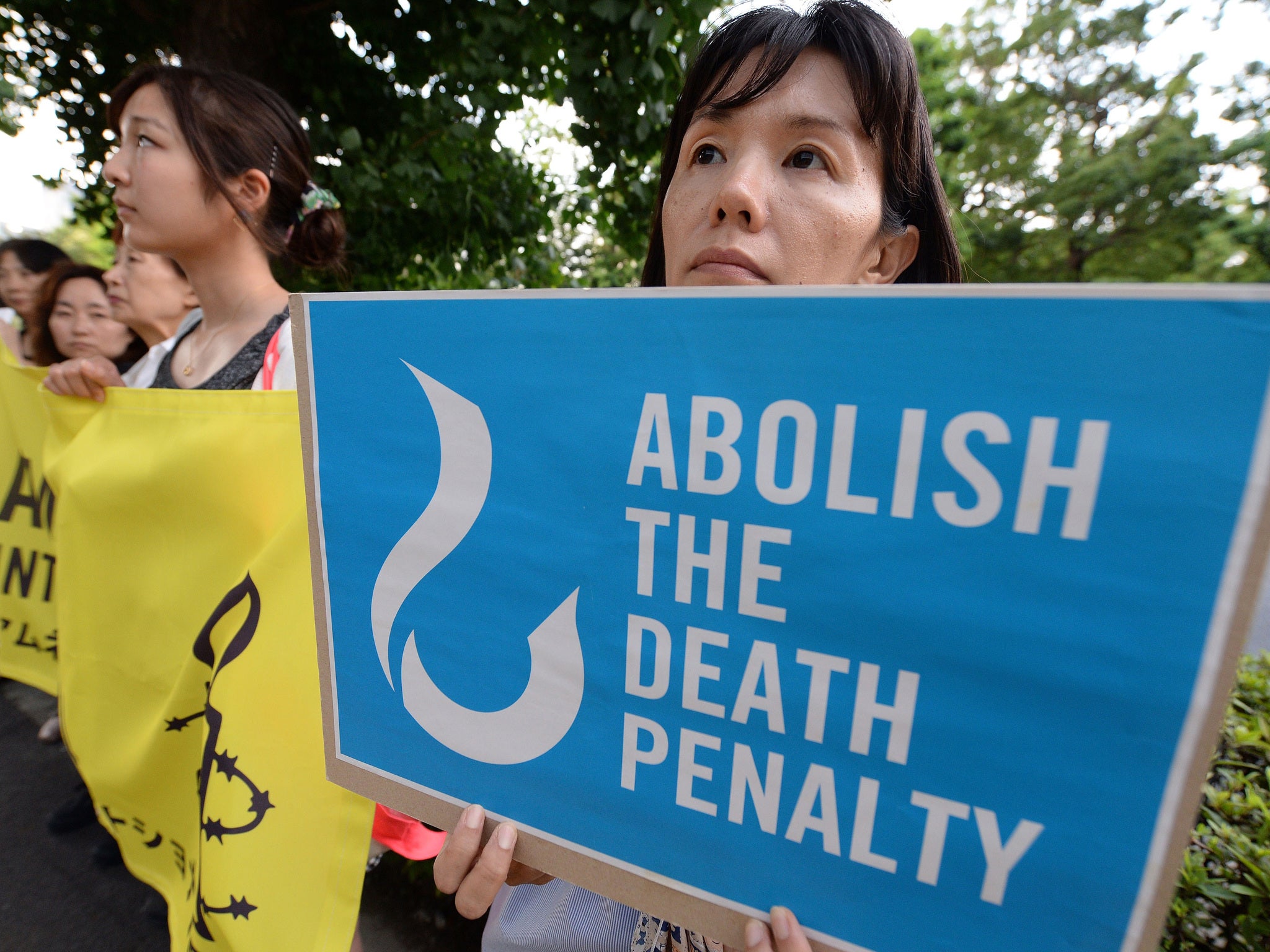Foreign Office will no longer explicitly campaign for an end to use of the death penalty worldwide
Does this signal a softer approach to capital punishment?

Your support helps us to tell the story
From reproductive rights to climate change to Big Tech, The Independent is on the ground when the story is developing. Whether it's investigating the financials of Elon Musk's pro-Trump PAC or producing our latest documentary, 'The A Word', which shines a light on the American women fighting for reproductive rights, we know how important it is to parse out the facts from the messaging.
At such a critical moment in US history, we need reporters on the ground. Your donation allows us to keep sending journalists to speak to both sides of the story.
The Independent is trusted by Americans across the entire political spectrum. And unlike many other quality news outlets, we choose not to lock Americans out of our reporting and analysis with paywalls. We believe quality journalism should be available to everyone, paid for by those who can afford it.
Your support makes all the difference.The Government has dropped explicit references to abolishing the death penalty from its stated aims on global human rights.
The Foreign and Commonwealth Office (FCO) has alarmed campaigners, after dropping explicit references to abolishing the death penalty from its global human right work.
Charities have expressed alarm over the move by the Foreign and Commonwealth Office (FCO) and called on the Foreign Secretary, Philip Hammond, to reconsider the decision.
The FCO is renowned internationally for its work on six “global thematic priorities” - currently focusing on freedom of expression on the internet, abolition of the death penalty, torture prevention, freedom of religion or belief, women’s rights, and business and human rights.
In the FCO’s Human Rights and Democracy Report 2014, the Government department claimed that their work in this area was part of “sustained [and] long-term efforts” to see an end to the death penalty worldwide. Less than 12 months later, references to the death penalty are set to vanish.
Replacing the priorities will be three new categories of work relating to democratic values, human rights and the rule of law. No mention will be made of the death penalty.

Reprieve, a charity that provides free legal and investigative support to people facing execution and torture around the world, has expressed deep concern over the changes.
It has called on Mr Hammond to reconsider his “decision to abandon the government’s pledge to fight for the global abolition of capital punishment”.
Reprieve said the reforms were tantamount to “the UK’s retreat from the fight for global abolition of the death penalty”.
The FCO insists that the Government remains opposed to the death penalty.
Some Tory MPs have signalled a softer approach to the death penalty than the Government's official line.
In 2013, a group of Conservative MPs launched an attempt to bring back the death penalty, alongside other controversial proposals including privatising the BBC and banning the burka.
The current Minister of State for Employment, Priti Patel, is also on record saying she’d like to see a return of capital punishment in the UK. In 2011, she told the BBC’s Question Time programme that she would support the reintroduction of the death penalty because she believed it would act as a deterrent to crime.

“I have said this before and I say this again: I do think that when we have a criminal justice system that continuously fails in the country and where we have seen murderers and rapists … reoffend and do those crimes again and again I think that’s appalling,” she said.
“On that basis alone I would support the reintroduction of capital punishment to serve as a deterrent.”
But officials argue that the Government's policy on campaigning against capital punishment "hasn't changed."
"We remain committed to advancing global abolition of the death penalty and it is wrong to suggest otherwise," an FCO Spokeswoman told The Independent.
"The Government opposes the death penalty in all circumstances as a matter of principle and we would like to see the long term trend towards abolition continue throughout this Parliament.”
The Foreign Office is spending £600,000 on anti-death penalty projects in 2015/16, although this funding has never been ringfenced.
According to Amnesty International, at least 607 executions took place in 2014, across 22 countries around the world. Amnesty argue that there is “no evidence that the death penalty has a greater deterrent effect on crime than terms of imprisonment.”
Just last week David Cameron was lobbying a foreign government to rethink the sentencing of a British grandmother to death abroad. Whilst in Indonesia, the PM raised the case of Lindsay Sandiford with President Joko Widodo, after the 59-year-old's death sentence continues to hold for drug offences.
Join our commenting forum
Join thought-provoking conversations, follow other Independent readers and see their replies
Comments